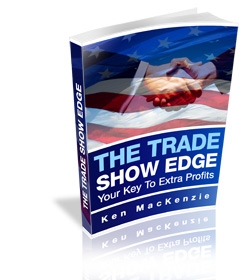Table of Contents
Trade Show Training and Scheduling – Very Important Aspects
As someone who has been in the trade show industry for several years, I cannot stress enough the importance of trade show training for booth staff. The success of your trade show participation hinges on the skills and knowledge of your team.

In this article, we will delve into the essential techniques that can make a significant difference in your booth’s performance. From understanding your target audience to mastering communication skills and generating leads, we will cover it all.
Understanding Your Target Audience
To make the most of your trade show experience, it is crucial to identify the needs and preferences of your target audience. Take the time to research and understand the demographics, interests, and pain points of the attendees. By tailoring your training techniques to engage specific audience segments, you can create a more personalized and impactful experience for visitors.
Effective Communication Skills
Communication is at the heart of every successful interaction at a trade show. Both verbal and non-verbal communication techniques play a vital role in engaging attendees. Encourage your booth staff to develop active listening skills, allowing them to genuinely understand the needs and concerns of visitors. By engaging in meaningful conversations, they can establish connections and build rapport with potential clients.
Product Knowledge Mastery
A booth staff armed with comprehensive knowledge about your products or services is a formidable asset. Make sure your team understands the features, benefits, and unique selling points of each offering. Train them on effective presentation and explanation techniques to effectively communicate the value your brand brings to the table. By showcasing your expertise, you can instill confidence in potential customers and differentiate yourself from competitors.
Engaging Attendees and Building Relationships
Attracting and retaining the attention of attendees is a constant challenge in the bustling trade show environment. Develop strategies that go beyond mere product demonstrations. Consider interactive elements, such as games or virtual reality experiences, to create a memorable and engaging booth environment. Focus on building relationships by providing personalized attention and making each visitor feel valued.
Handling Objections and Difficult Situations
Trade show attendees may have objections or concerns that need to be addressed effectively. Prepare your booth staff to handle objections with confidence and professionalism. Teach them techniques to empathize, clarify concerns, and provide suitable solutions. By turning challenges into opportunities, your team can demonstrate exceptional customer service and potentially convert hesitant prospects into loyal clients.
Lead Generation and Qualification
Identifying and qualifying potential leads is crucial for maximizing the return on your trade show investment. Provide comprehensive training on lead generation techniques, such as effective data collection and lead management strategies. Equip your staff with the skills to initiate conversations, ask qualifying questions, and identify prospects with genuine interest and potential.
Follow-Up and Post-Show Activities
Don’t underestimate the power of timely follow-up after the trade show. Many valuable leads are lost due to inadequate or delayed post-show communication. Implement a well-defined follow-up process that includes personalized messages, thank-you notes, and relevant content to nurture the leads you’ve acquired. Maintain the momentum and keep the conversation going to solidify relationships and potentially close deals.
Continuous Improvement and Evaluation
Trade show training is not a one-time event but an ongoing process of growth and refinement. Establish feedback loops and assessment methods to gather insights from your booth staff and attendees. Encourage continuous learning and skill development by providing resources, workshops, and opportunities for practice. Embrace change and adapt to evolving industry trends and customer expectations.
Trade show training is one of the most important aspects of your exhibit strategy, if not the most important aspect.

Without dynamic trade show staff, your eye-catching exhibit; pre-show publicity; product demonstrations, and excellent giveaways can be wasted.
Trade show training is essential for a professional image.
What’s the number one reason for attendees feeling under-served at trade shows?
Well, it revolves around trade show staff issues and their lack of intimate knowledge of a product.
Attendees want to have spontaneous discussions with knowledgeable booth staff. And, with staff that knows pricing and how to use the products.
Trade show visitors claim they avoid booths that were too crowded and were seen as ‘selling situations’ rather than a place to learn about new products and services.
Yet so many organizations continue to man booths with under-trained, under-equipped salespeople.
Research shows that attendees prefer to speak with people who have trade show training and technical background (such as production/operations, engineering, scientific/technical, and R&D) rather than people in sales and marketing.
Trade show staff have the responsibility of pre-qualifying booth visitors and establishing relationships that convert prospects into leads and then into buyers.
They represent your products or services as well as your company’s image. An exhibit, no matter how well conceived or executed, only comes alive as a marketing or sales reality in direct ratio to the caliber of its personnel.
Trade show training of booth staff can make or break your success
Remember, the effectiveness of your trade show training of booth staff can make or break your success at a trade show.

Trade show training should include product training, exhibition logistics, exhibiting goals, booth etiquette, meet and greet techniques, qualifying techniques, demonstration techniques, closing techniques, follow-up techniques and lead management.
Surveys have shown that an amazingly high number of companies do not focus on trade show training in vital exhibiting techniques such as meet and greet, qualifying, closing and lead management techniques. In addition, they don’t spend time in their trade show training program on their exhibiting goals and objectives.
However, those companies that did undertake trade show training and train their staff in exhibiting goals and objectives, as well as qualifying and closing techniques, had an increased number of quality leads obtained.
The trade show staff’s attitude, body language, appearance, and knowledge help to create positive or negative perceptions in the minds of visitors.
That’s why trade show training is so important.
It’s also important to staff your booth with employees who have excellent customer relationship skills as well as being good communicators. Of course, they should also fully understand your objectives.
You will need to appoint a trade show coordinator and booth staff early on in the planning process.
You should also study the job titles and functions of those who are expected at the trade show so that you can assign the right personnel to your booth. For example, have technical people on hand to answer questions if that’s what is required.
Members of the exhibition team need to understand the rather special techniques that apply to handling inquiries on the booth and you should spend at least a full day of hands-on trade show training at your facility with your trade show display booth staff.
Conclusion
In conclusion, trade show training is a fundamental element of booth staff success. By understanding your target audience, mastering effective communication skills, and showcasing in-depth product knowledge, you can attract, engage, and convert leads at trade shows. Building relationships, handling objections, and generating qualified leads are essential steps toward achieving trade show success
For additional information on trade show staff and pre-trade show training, sales, and marketing techniques to make your participation a success, please visit The Trade Show Edge
Frequently Asked Questions (FAQ’s)
- Q: Why is trade show training important?
A: Trade show training is important because it equips booth staff with the necessary skills and knowledge to represent the company effectively, engage with attendees, and maximize the opportunities at trade shows. - Q: How can trade show training benefit my business?
A: Trade show training can benefit your business by improving booth staff’s communication skills, enhancing lead generation and conversion rates, increasing brand visibility, and ultimately driving more business opportunities and sales. - Q: What topics should be covered in trade show training?
A: Trade show training should cover various topics such as booth etiquette, engaging conversation techniques, lead qualification, product knowledge, handling objections, effective follow-up strategies, and staying updated with industry trends. - Q: How far in advance should I start training my booth staff for a trade show?
A: It is recommended to start training your booth staff at least a few weeks or a month before the trade show. This allows sufficient time for them to learn, practice, and refine their skills. - Q: How can I ensure the training is effective?
A: To ensure effective trade show training, consider conducting interactive sessions, role-playing exercises, and providing real-life examples. Regularly assess the progress of your booth staff and provide constructive feedback to help them improve. - Q: Should I provide ongoing training for my booth staff?
A: Yes, providing ongoing training for your booth staff is crucial. This helps them stay updated with industry trends, refresh their skills, and continuously improve their performance at trade shows. - Q: How can I measure the success of trade show training?
A: Success can be measured by tracking key performance indicators (KPIs) such as the number of qualified leads generated, sales conversions, attendee feedback, and overall return on investment (ROI) from trade show participation. - Q: How can I address common challenges faced by booth staff during trade shows?
A: Common challenges such as dealing with difficult attendees, managing time effectively, and staying energized throughout the event can be addressed through training sessions focused on specific scenarios, providing practical tips, and sharing best practices. - Q: Are there any online resources or tools available for trade show training?
Yes, there are various online resources, webinars, and training courses specifically designed for trade show training. These resources can provide additional guidance, tips, and strategies for booth staff. - Q: How can I incorporate technology into trade show training?
A: Technology can be incorporated into trade show training through the use of interactive training modules, virtual simulations, online training platforms, and mobile apps that provide access to training materials and resources.
As an Amazon Affiliate, I earn from qualifying purchases. TheTradeShowEdge.com is a participant in the Amazon Services LLC Associates Program, an affiliate advertising program designed to provide a means for sites to earn advertising fees by advertising and linking to Amazon.com.
Links on this trade show training page are sponsored affiliate links and the owner makes commission if you buy after clicking these links. The owner is not a bona-fide user of this product. However, he has thoroughly researched it and provided a personal opinion only. This disclosure is in accordance with the Federal Trade Commission’s 16 CFR, Part 255: “Guides Concerning the Use of Endorsements and Testimonials in Advertising.”
Tagged with: exhibitor staff training • trade show staff training tips • training your booth staff
Filed under: Trade Show Articles
